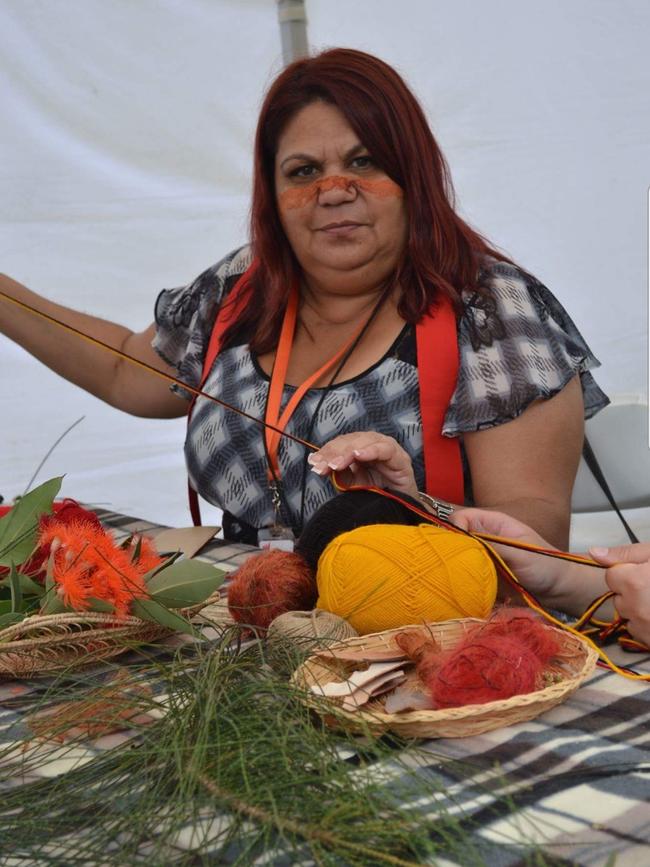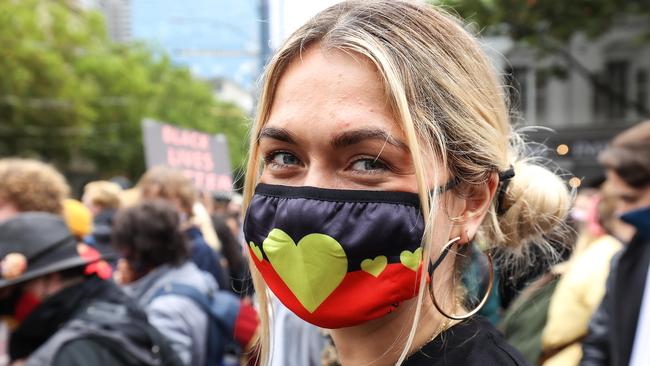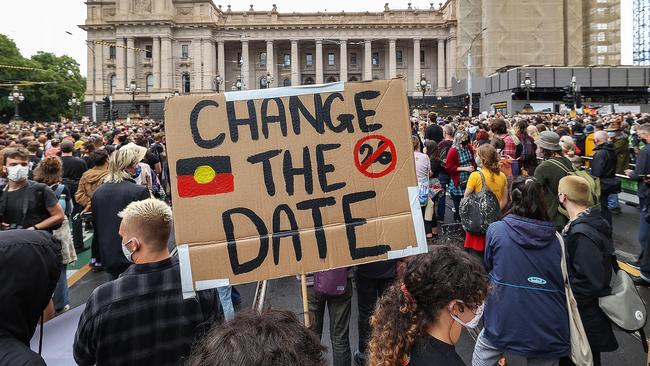Why you should not say ‘Happy Australia Day’ on January 26
January 26 is not the anniversary of something joyful at all. It’s the furthest thing from it, which is why you can’t say these three words.
Real Life
Don't miss out on the headlines from Real Life. Followed categories will be added to My News.
It is quite odd isn’t it?
To celebrate the anniversary of a day that marked the beginning of the horrific treatment of a group of people?
We’re talking mass killings and stolen children, ripped from their families.
You’d hardly call that happy, which is why hearing and seeing the words “Happy Australia Day” on January 26 is so jarring.
For Indigenous Australians it is a reminder of the beginning of intergenerational trauma and that is why the words Invasion Day or Survival Day are used to describe the day instead.
Activist, model and influencer Fallon Gregory, a proud Nyul-Nyul woman, said using this terminology acknowledged the historical atrocities that occurred against First Nations people, land and culture.
“To say ‘Happy Australia Day’ is to invalidate and discard the atrocities that’s occurred upon -and since – the arrival, colonisation and settlement of Australia,” she explained.
Ms Gregory wants Australians to have the uncomfortable conversation with family and friends who choose to celebrate on January 26.
After all, how many people actually know what they’re celebrating? What happened back in 1788?
January 26 is not a day for celebration – that’s why news.com.au is campaigning to change the date of Australia Day, so we can celebrate the best country in the world, without leaving anyone behind.


To be completely honest, when I was asked to work on news.com.au’s Change the Date campaign I was excited to be part of such an important collection of stories, but nervous too.
I was concerned the questions I needed to ask would be considered too simple, but not one Indigenous Australian I spoke to rejected any of my questions.
Kalkadoon (Pitta Pitta) and Gunggari woman Minelle Creed put it perfectly when, unprompted, she said: “Don’t be afraid to ask questions.”
“A lot of times people are afraid to ask the questions because they think it might be offensive but a lot of our people are really open to giving answers these days.
“You might not get an answer that’s necessarily positive but simply asking the questions will give you a feeling of what people want to say and their reaction to it.”
Ms Creed works with Common Ground, a not-for-profit that amplifies the stories of First Nations people.
She wants white Australians not to feel guilty about what happened 200 years ago, because we can’t change the past, but said the history needed to be acknowledged.
“We don’t want people to feel guilty,” Ms Creed said.
“We can’t be responsible for what our ancestors did, because you know some of us are mixed-blood and have ancestors that came on the First Fleet.
“We can’t be responsible for the choices they made but we can be responsible for the choices we make in the future to be not only inclusive of Aboriginal people but all people in our country of all nations.”


Speaking to Indigenous Australians and hearing their thoughts, the message was clear: the reason why Australia Day is offensive is because of the date it is celebrated on.
Considering it hasn’t even always been on this date – it is a strange thing to be stubborn about. Australia Day only officially became a public holiday for all states and territories in 1994.
There is still a collective desire to have a national day that celebrates Australia and people of all backgrounds, just on another date.
I have to agree with Indigenous singer Jason Owen, when he said: “Our country, our landscapes, our climate, we live in a beautiful country.”
“We should always acknowledge and have conversations about Aboriginal communities, their struggles and achievements, but I feel we should also talk about the many incredible things people of all backgrounds do and have achieved within Australia.”
Ms Creed shared the same sentiment.
“We want to celebrate our country as well but not on a day that represents the beginning of genocide for our people and this country,” she said.
So what should you be saying instead of “Happy Australia Day” this year? Change the date.
Originally published as Why you should not say ‘Happy Australia Day’ on January 26


